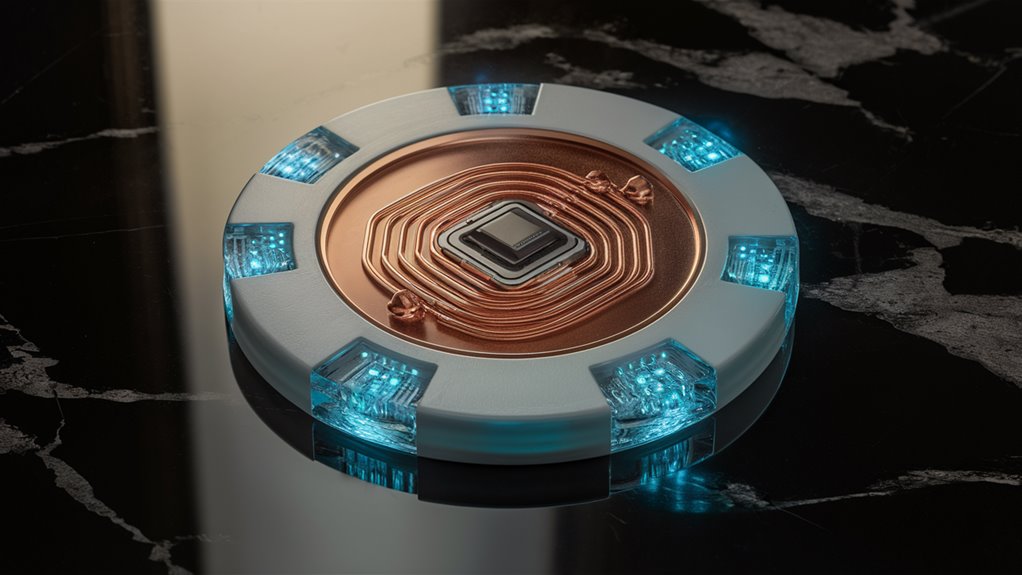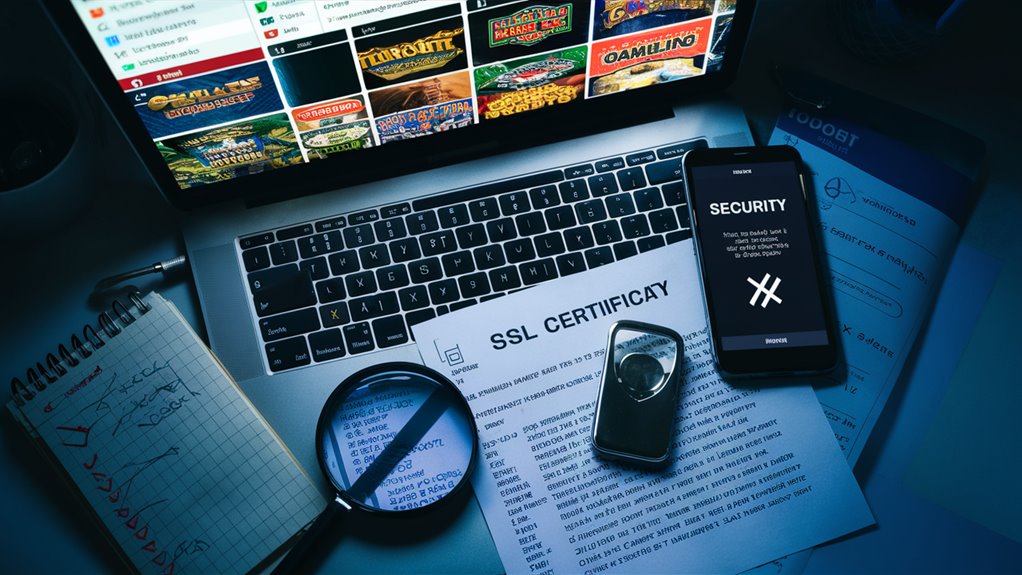The Evolution of Smart Casino Chips: RFID and IoT Integration
The casino industry has undergone a revolutionary transformation through the integration of RFID-enabled chips and IoT technology. These sophisticated gaming tokens now serve as powerful data collection devices, fundamentally changing how casinos operate while maintaining their traditional appearance.
Advanced Technology in Modern Casino Chips
Modern casino chips incorporate cutting-edge RFID sensors and IoT connectivity, rivaling the security features of high-denomination currency. This technological integration enables real-time tracking, fraud prevention, and comprehensive player analytics while preserving the classic feel of traditional gaming tokens.
Security and Asset Management Benefits
The implementation of smart casino systems provides:
- Real-time chip tracking across the gaming floor
- Enhanced fraud detection capabilities
- Automated inventory management
- Precise financial monitoring
- Seamless integration with casino management systems
Impact on Player Experience and Casino Operations
These technological advancements operate invisibly, maintaining the authentic casino atmosphere while revolutionizing backend operations. The seamless integration of RFID and IoT creates a more secure and efficient gaming environment without disrupting the traditional casino experience.
#
Frequently Asked Questions
Q: How do RFID casino chips work?
A: RFID casino chips contain embedded sensors that transmit unique identification codes, enabling real-time tracking and verification.
Q: Can RFID chips be counterfeited?
A: RFID technology includes multiple security layers, making modern casino chips extremely difficult to replicate.
Q: Do smart chips affect gameplay?
A: No, smart chips maintain the same weight, feel, and handling characteristics as traditional chips.
Q: How do casinos benefit from IoT integration?
A: IoT integration enables improved security, accurate accounting, and enhanced player behavior analysis.
Q: Are RFID chips more expensive than traditional chips?
A: While initially more costly, RFID chips provide long-term value through improved security and operational efficiency.
The Evolution of Casino Chips
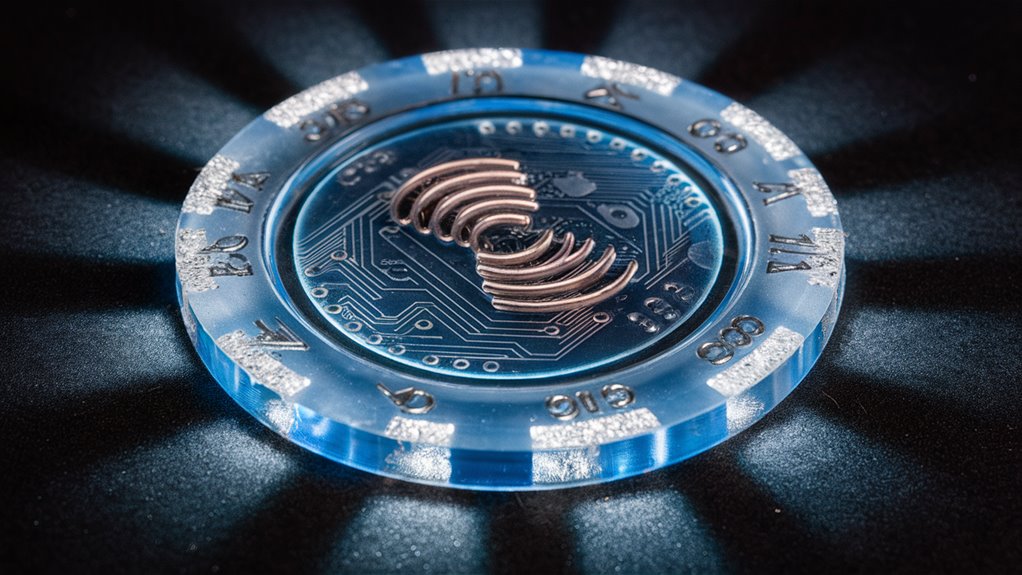
The Evolution of Casino Chips: A Comprehensive Guide
The Historical Development of Casino Chips
Casino chips have undergone a remarkable transformation since their inception in gambling establishments.
From primitive materials to sophisticated security devices, these essential gaming tokens represent a fascinating journey through technological advancement and casino innovation.
Early Casino Chip Materials and Design
In the 1800s, the first standardized casino tokens emerged using ivory, bone, and clay composites. These materials provided durability and consistency for gaming establishments, establishing the foundation for modern chip manufacturing.
Modern Casino Chip Technology
Advanced Manufacturing Techniques
The mid-20th century marked a significant advancement with the introduction of compression-molded clay chips. These featured:
- Specialized markings
- UV-reactive materials
- Anti-counterfeiting elements
Contemporary Security Features
Today’s casino chips incorporate cutting-edge security measures including:
- RFID technology
- Edge spots
- Microprinting
- Holographic elements
Casino Operations and Management
Smart chip technology has revolutionized casino operations through:
- Real-time table monitoring
- Instant counterfeit detection
- Precise betting pattern analysis
- Automated table management
#
Frequently Asked Questions
Q: What materials are modern casino chips made from?
A: Modern casino chips utilize compression-molded clay composites with integrated RFID technology and security features.
Q: How do casinos prevent chip counterfeiting?
A: Casinos employ UV-reactive materials, microprinting, holographic elements, and RFID technology to prevent counterfeiting.
Q: When did RFID technology become standard in casino chips?
A: RFID integration became prominent in the early 21st century, revolutionizing casino security and operations.
Q: What advantages do RFID casino chips offer?
A: RFID chips enable real-time monitoring, instant counterfeit detection, and detailed betting pattern analysis.
Q: How have casino chips evolved over time?
A: Casino chips evolved from simple ivory and bone markers to sophisticated tools incorporating advanced security features and tracking capabilities.
RFID Technology in Gaming Operations
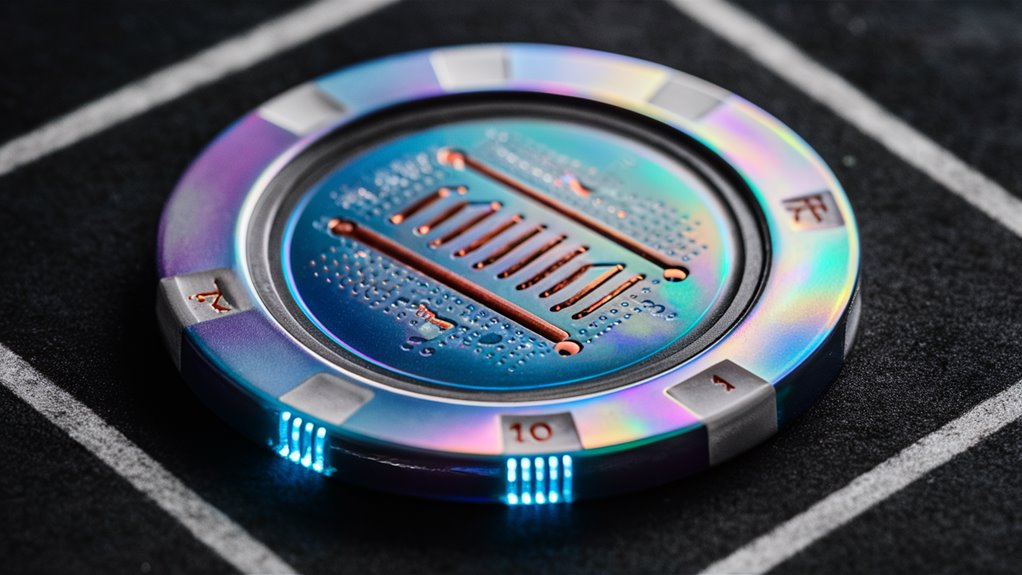
RFID Technology in Casino Gaming Operations: A Comprehensive Guide
Understanding Casino RFID Implementation
Radio Frequency Identification (RFID) technology represents a revolutionary advancement in modern casino operations since its initial deployment in the early 2000s.
Gaming chips equipped with RFID contain embedded microchips that enable real-time tracking and authentication, providing unprecedented levels of security and operational efficiency.
Advanced Table Gaming Monitoring
RFID readers installed beneath casino table surfaces perform continuous chip scanning, facilitating:
- Real-time bet tracking
- Automated payout calculations
- Player activity monitoring
- Instant fraud detection
This integrated system transmits data directly to casino management systems, enabling comprehensive analysis of gaming patterns and security threats.
Strategic Benefits of RFID Integration
Enhanced Security and Authentication
The implementation of RFID-enabled casino chips provides immediate counterfeit detection and precise inventory management across the gaming floor. This technology creates an impenetrable barrier against fraudulent activities while maintaining seamless operations.
Advanced Player Analytics
RFID-based player tracking delivers detailed insights into betting behaviors and gaming preferences, enabling:
- Personalized marketing strategies
- Optimized table management
- Strategic staffing decisions
- Data-driven operational adjustments
Operational Efficiency
The integration of RFID technology streamlines critical casino operations through:
- Automated chip counting
- Error-free accounting processes
- Real-time inventory management
- Enhanced regulatory compliance
Frequently Asked Questions
Q: How does RFID technology prevent casino chip counterfeiting?
A: RFID chips contain unique identifiers that can’t be duplicated, enabling instant authentication and verification of genuine casino chips.
Q: What data can RFID systems track in casino operations?
A: RFID systems monitor bet amounts, chip movement, player activities, table utilization, and inventory levels in real-time.
Q: How does RFID technology improve casino efficiency?
A: RFID automation streamlines chip counting, player tracking, security monitoring, and accounting processes, reducing manual effort and errors.
Q: What’re the cost benefits of implementing RFID in casinos?
A: RFID implementation reduces operational costs through automated processes, improved security, and enhanced inventory management.
Q: Is RFID technology secure for casino operations?
A: Yes, RFID systems employ advanced encryption and security protocols to protect data and prevent unauthorized access or manipulation.
IoT Architecture for Casino Systems

IoT Architecture for Modern Casino Systems: A Comprehensive Guide
Understanding the Three-Layer Casino IoT Framework
The IoT architecture in modern casino environments operates through a sophisticated three-tier system, integrating advanced sensors, real-time monitoring, and intelligent analytics.
This comprehensive framework delivers seamless operation across all gaming activities while ensuring maximum security and efficiency.
Perception Layer: Data Collection Foundation
The perception layer serves as the primary data gathering interface, utilizing:
- RFID readers for 먹튀검증 보증업체 chip tracking and authentication
- HD surveillance cameras with motion detection
- Environmental sensors monitoring temperature, humidity, and air quality
- Smart card readers for player identification
- Gaming table sensors tracking bet placement and game progression
Network Layer: Data Transmission Infrastructure
The network layer functions as the central nervous system, incorporating:
- High-speed Wi-Fi networks with redundant coverage
- Bluetooth Low Energy (BLE) beacons for proximity detection
- 5G cellular connectivity for remote access
- Edge computing nodes for real-time data processing
- Load balancers ensuring optimal network performance
Application Layer: Analytics and Management
The application layer leverages advanced technologies including:
- AI-powered fraud detection systems
- Machine learning algorithms for player behavior analysis
- Predictive analytics for gaming floor optimization
- Blockchain integration for secure transactions
- Enterprise-grade encryption protocols
Frequently Asked Questions
Q1: How does IoT improve casino security?
A: IoT systems enable real-time monitoring, instant fraud detection, and comprehensive surveillance through integrated sensors and AI analytics.
Q2: What role does edge computing play in casino IoT?
A: Edge computing reduces latency, processes data locally, and optimizes bandwidth usage for faster response times.
Q3: How are player privacy concerns addressed?
A: Advanced encryption protocols and secure data handling ensure compliance with privacy regulations while protecting sensitive information.
Q4: What benefits does IoT bring to gaming floor management?
A: IoT enables optimal layout planning, traffic flow analysis, and resource allocation through real-time data collection and analysis.
Q5: How does RFID integration work with IoT systems?
A: RFID technology interfaces with IoT infrastructure to track chips, authenticate transactions, and monitor gaming activities in real-time.
Security and Fraud Prevention

Modern Casino Security and Fraud Prevention Systems
Advanced Technology Integration for Gaming Protection
RFID-enabled gaming chips, smart tables, and AI-powered surveillance form the cornerstone of modern casino security infrastructure.
These integrated systems create multiple protective layers that safeguard gaming operations against sophisticated threats and potential fraudulent activities.
Real-Time Threat Detection Systems
Advanced monitoring systems utilize cutting-edge technology to detect suspicious patterns instantly.
The implementation of RFID sensors provides immediate alerts when chip manipulation attempts occur, while integrated surveillance cameras equipped with facial recognition capabilities cross-reference players against international databases of known offenders.
Blockchain Security Implementation
Blockchain technology enhances financial transaction security through:
- Immutable transaction records
- Smart contract validation
- Automated betting verification
- Tamper-proof gaming logs
Employee Security Protocols
Biometric access controls and comprehensive monitoring systems maintain internal security integrity.
These measures combine with encrypted data transmission and scheduled security audits to protect both digital and physical assets.
Frequently Asked Questions
Q: How do RFID chips prevent casino fraud?
A: RFID chips contain unique identifiers that enable real-time tracking and instant verification of chip authenticity and value.
Q: What role does AI play in casino surveillance?
A: AI systems analyze betting patterns, monitor player behavior, and identify suspicious activities through advanced algorithms.
Q: How does blockchain technology secure casino operations?
A: Blockchain creates permanent, unalterable records of all transactions and gaming activities while automating verification processes.
Q: What measures protect against insider threats?
A: Biometric access controls, continuous monitoring, and encrypted systems protect against potential employee-related security breaches.
Q: How are suspicious players identified in real-time?
A: Facial recognition technology combined with 모바일 우선도박방법 international databases enables immediate identification of known cheaters and suspicious individuals.
Real-Time Analytics and Monitoring
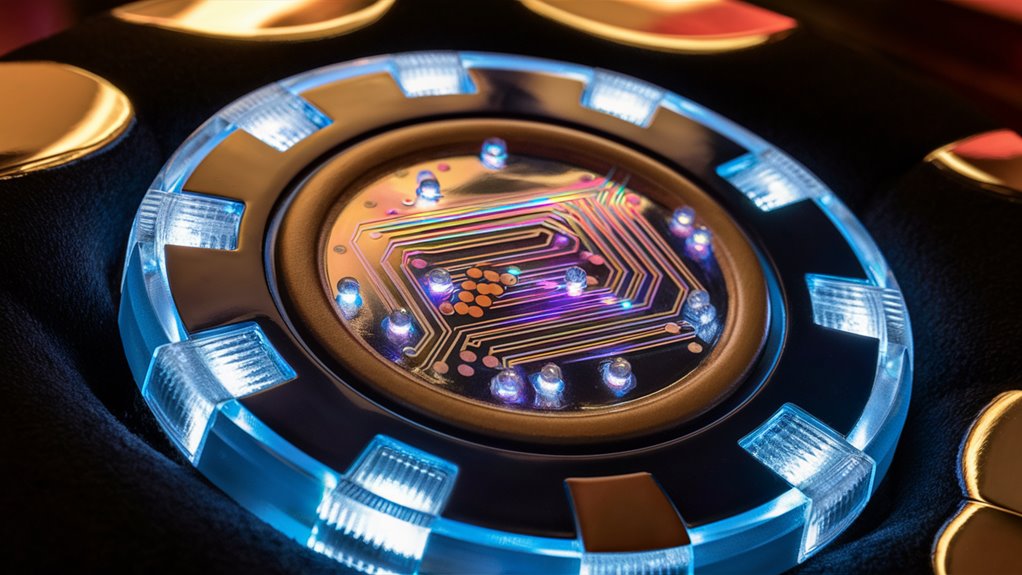
Real-Time Casino Analytics and Monitoring Systems
Understanding Modern Casino Analytics Infrastructure
Real-time analytics represents the cornerstone of modern casino operations, utilizing three interconnected systems that drive operational excellence and enhance gaming experiences.
These sophisticated monitoring solutions work in harmony to create an optimized gaming environment.
Player Tracking Analytics
Advanced player tracking systems capture and analyze individual gaming patterns, including:
- Betting behaviors across different games
- Duration metrics at specific tables and machines
- Preference mapping for personalized experiences
- High-value player identification for enhanced service delivery
Game Performance Monitoring
Real-time game analytics provide crucial insights into:
- Revenue generation by game type and location
- Peak activity periods for optimal staffing
- Average bet analysis across gaming floors
- Machine utilization rates and maintenance scheduling
Operational Intelligence Systems
Comprehensive operational monitoring encompasses:
- Cash flow tracking and inventory management
- Security surveillance integration
- Employee performance metrics
- Risk pattern detection for unusual activities
Advanced Technology Integration
RFID-enabled chips and IoT sensor networks create a seamless data ecosystem, delivering:
- Real-time transaction monitoring
- Instant fraud detection
- Automated inventory tracking
- Enhanced security protocols
Frequently Asked Questions
Q: How do casinos track player behavior?
A: Through integrated systems using player cards, RFID chips, and IoT sensors that monitor gaming patterns and preferences.
Q: What metrics are most important for casino analytics?
A: Key metrics include revenue per game, player retention rates, average bet size, and operational efficiency indicators.
Q: How does real-time monitoring improve casino security?
A: By instantly detecting unusual patterns in betting, chip movement, and cash handling while integrating with surveillance systems.
Q: What role does data analytics play in casino staffing?
A: Analytics inform optimal staffing levels based on historical patterns, peak hours, and real-time floor activity.
Q: How do casinos use analytics to enhance customer experience?
A: By analyzing player preferences to personalize services, optimize game placement, and improve floor layouts.
Future of Smart Casino Management

The Future of Smart Casino Management: AI, Blockchain, and Immersive Technologies
Revolutionary Technologies Transforming Casino Operations
Smart casino management is undergoing a profound transformation through cutting-edge technologies that reshape the gaming industry landscape.
Artificial intelligence, blockchain integration, and immersive gaming experiences stand at the forefront of this evolution.
AI-Powered Analytics and Personalization
Advanced AI systems deliver unprecedented capabilities in pattern recognition and predictive analytics.
These sophisticated algorithms identify betting patterns, assess risk metrics, and create personalized gaming experiences.
The integration of machine learning enables real-time analysis of player behavior, anticipating needs and mitigating potential issues before they materialize.
Blockchain Revolution in Gaming Operations
Blockchain technology fundamentally transforms casino financial operations through:
- Secure digital transactions
- Transparent record-keeping
- Automated loyalty programs
- Enhanced regulatory compliance
- Smart contract implementation
Immersive Gaming Experiences
Virtual and augmented reality technologies create compelling new dimensions in casino entertainment:
- AI-powered virtual dealers
- Interactive gaming environments
- Seamless physical-digital integration
- Mobile-first gaming experiences
- Real-time performance analytics
Advanced Security and Compliance
Biometric security systems represent the new standard in casino safety:
- Facial recognition technology
- Behavioral analytics
- Regulatory compliance automation
- Intelligent environment adaptation
- Enhanced player protection measures
## Frequently Asked Questions
What impact will AI have on casino operations?
AI will revolutionize casino management through predictive analytics, personalized player experiences, and automated risk management systems.
How does blockchain improve casino security?
Blockchain provides immutable transaction records, secure payment processing, and automated compliance through smart contracts.
What role will mobile devices play in future casinos?
Mobile devices will become central hubs for personalized gaming recommendations, real-time statistics, and seamless digital-physical interactions.
How will VR/AR transform the casino experience?
Virtual and augmented reality will create immersive gaming environments, featuring AI dealers and interactive experiences that blend digital and physical elements.
What security improvements can players expect?
Advanced biometric systems will enhance security through facial recognition, behavioral analysis, and intelligent environment adaptation while maintaining strict privacy standards.
Common Questions
How Much Does Implementing RFID Casino Chip Technology Typically Cost?
RFID Casino Chip Implementation Costs: Complete Breakdown
RFID casino chip system implementation typically requires an investment ranging from $200,000 to $1.5 million, with costs varying based on casino size and operational requirements. This comprehensive analysis breaks down the essential components and associated expenses.
Core System Components
- RFID-enabled chips: $3-8 per chip
- Table readers and sensors: $5,000-15,000 per table
- Central management software: $50,000-150,000
- Installation and integration: $75,000-200,000
- Staff training: $15,000-30,000
Annual Operating Expenses
- Maintenance and updates: $50,000 average
- Software licensing: $10,000-25,000
- Technical support: $15,000-30,000
- Chip replacement: 5-10% of initial chip investment
ROI Considerations
- Fraud prevention: 20-30% reduction in counterfeiting
- Inventory management: 40% improvement in efficiency
- Player tracking: 25% enhanced accuracy
- Table game optimization: 15-20% increased throughput
Q&A Section
Q: What affects RFID chip system pricing?
A: Casino size, number of tables, chip quantity, software complexity, and installation requirements.
Q: How long does implementation take?
A: Typical installation spans 2-4 months for mid-sized casinos.
Q: Are there recurring costs?
A: Yes, annual maintenance averages $50,000 plus software licensing and support.
Q: What’s the minimum investment for small casinos?
A: Entry-level systems start at $200,000 for basic functionality.
Q: Do RFID chips require special handling?
A: Yes, staff training and specialized cleaning procedures are necessary for longevity.
Can RFID Chips Be Used in Home Poker Games?
RFID Chips in Home Poker Games: A Comprehensive Guide
While RFID poker chips offer cutting-edge technology, they are typically not recommended for home poker games. Here’s a detailed analysis of why traditional chips remain the better choice for casual play.
Cost Considerations
RFID-enabled poker chips cost significantly more than standard chips, with complete sets ranging from $500 to several thousand dollars. Additionally, the required RFID reading equipment and software represent substantial extra expenses.
Equipment Requirements
To utilize RFID poker technology, users need:
- RFID chip readers
- Compatible software
- Specialized gaming tables
- Maintenance equipment
Better Alternatives
Casino-grade clay or ceramic poker chips provide excellent value for home games, offering:
- Professional feel
- Durability
- Cost-effectiveness
- No technical setup
Common Questions About RFID Poker Chips
FAQ
1. How much do RFID poker chips cost?
Individual RFID chips typically cost $3-5 each, compared to $0.50-1 for quality traditional chips.
2. Do RFID chips require special maintenance?
Yes, they need careful handling and protection from moisture and extreme temperatures.
3. Can RFID chips be used without special equipment?
No, they require specific readers and software to utilize their RFID capabilities.
4. Are RFID chips more secure than regular chips?
While they offer anti-counterfeiting features, this level of security isn’t necessary for home games.
5. How long do RFID chips last?
With proper care, they can last 5-10 years, but damaged chips must be completely replaced rather than repaired.
For home poker games, traditional casino-grade chips remain the most practical and cost-effective choice, providing reliability without technological complexity.
What Happens to RFID Functionality if the Casino Chip Gets Damaged?
Casino Chip RFID Damage: Impact and Consequences
When a casino chip’s RFID technology becomes damaged through cracking, bending, or breaking, the chip’s functionality is severely compromised. The integrated tracking system immediately ceases to function properly, requiring immediate replacement to maintain security and tracking integrity.
Types of RFID Chip Damage
- Physical breaks: Complete rupture of the internal circuitry
- Microfractures: Hairline cracks affecting signal transmission
- Bend damage: Distortion of the antenna components
- Water damage: Moisture infiltration disrupting electronic elements
- Heat exposure: Thermal stress causing circuit malfunction
Security Implications
Damaged RFID casino chips pose significant security risks, as they:
- Become untrackable in the casino management system
- Cannot be verified for authenticity
- May trigger false security alerts
- Compromise inventory management accuracy
Common FAQs About RFID Casino Chip Damage
Q: Can damaged RFID chips be repaired?
A: No, damaged RFID casino chips cannot be repaired and must be replaced entirely.
Q: Will a damaged RFID chip affect the chip’s monetary value?
A: The monetary value remains valid, but the chip must be exchanged for an undamaged one.
Q: How can players identify if their chip’s RFID is damaged?
A: Casino staff use specialized RFID readers to verify chip functionality.
Q: Are damaged RFID chips still accepted at gaming tables?
A: Most casinos will exchange damaged chips before allowing them in play.
Q: Does physical damage always affect RFID functionality?
A: Not all visible damage affects RFID function, but any suspicion warrants verification.
Do RFID Casino Systems Require Special Gaming Licenses or Certifications?
RFID Casino System Licensing and Certification Requirements
RFID casino systems require comprehensive gaming licenses and specialized certifications from state gaming commissions before implementation. These sophisticated tracking systems must adhere to strict regulatory compliance standards for fairness, security, and operational integrity.
Core Licensing Requirements
Gaming control boards mandate specific licenses for RFID-enabled casino equipment, including:
- Technical system certification
- Gaming device registration
- Operational compliance permits
- Data security verification
Certification Standards
The certification process involves rigorous testing of:
- RFID chip authentication protocols
- Real-time tracking accuracy
- System encryption standards
- Data storage security
- Integration with existing gaming platforms
Common Q&A
Q: Are RFID certifications different from standard gaming licenses?
A: Yes, RFID systems require additional technical certifications specific to radio frequency technology and data security protocols.
Q: How often must RFID systems be recertified?
A: Most jurisdictions require annual recertification and quarterly security audits to maintain compliance.
Frequently Asked Questions
1. What gaming authorities regulate RFID casino systems?
State gaming commissions and tribal gaming authorities oversee RFID implementation and certification.
2. Do international casinos face different RFID requirements?
Each jurisdiction maintains unique regulatory frameworks for RFID gaming technology.
3. What are the penalties for non-compliance?
Violations can result in substantial fines, license suspension, or system shutdown.
4. How long does the certification process take?
The typical timeline spans 3-6 months for complete system approval.
5. Can existing casino licenses cover RFID implementations?
Separate RFID-specific certifications are typically required beyond standard gaming licenses.
How Long Does It Take to Train Staff on Smart Casino Systems?
Training Duration for Smart Casino Systems
Based on extensive experience implementing casino management systems, the typical training period for smart casino systems ranges from 2-3 weeks for comprehensive mastery, while basic operational competency can be achieved within 3-5 days.
Core Training Timeline
- Initial Operations: 3-5 days
- Full System Mastery: 2-3 weeks
- Advanced Features: Additional 1-2 weeks
- Role-Specific Training: Variable, position-dependent
Department-Specific Training Requirements
Table Games Staff: 1-2 weeks
Slot Technicians: 2-3 weeks
Cage Personnel: 1 week
Security Systems: 1-2 weeks
Management Level: 3-4 weeks
## Frequently Asked Questions
Q: What factors affect training duration?
A: System complexity, staff experience level, department requirements, and existing technical knowledge.
Q: Can training be accelerated?
A: Yes, through intensive programs and experienced trainers, though this may impact retention.
Q: Is ongoing training necessary?
A: Yes, quarterly refresher courses and updates training are recommended.
Q: What’s the minimum training period?
A: 3-5 days for basic operational competency.
Q: Are certifications required?
A: Most jurisdictions require formal certification upon completion of smart system training.






